Speakers and symposium chairs
Featured speakers
Monday, Tuesday, and Friday will feature a plenary talk given by a colleague who is a leader in the field of biocrust research.
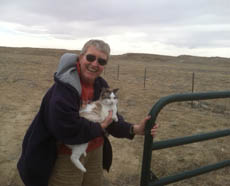
Jayne Belnap, Monday’s speaker
Jayne Belnap has worked with biocrusts since 1983, focusing on the many roles they play in desert ecosystems, including nutrient, carbon, and water cycles; soil food webs; and soil stability, and how the impact of disturbance (e.g., hiking, biking, military training, livestock grazing, and energy exploration/development) affects these roles. Her studies have taken her around the world, including Africa, Antarctica, Australia, China, Europe, Iceland, North and South America, Mongolia, and the United Arab Emirates, advising scientists and managers in these regions. Jayne has published more than 260 papers in this field. She also travels extensively throughout the United States, interacting with and training federal, state, and private land managers on best management practices for dryland ecosystems. Jayne has received many awards throughout her career and her science was recently highlighted in Scientific American.
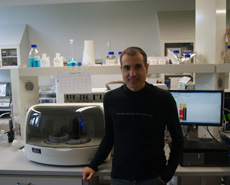
Fernando T. Maestre, Tuesday’s speaker
Fernando T. Maestre is an Associate Professor at Rey Juan Carlos University (Móstoles, Spain), and a recognized dryland ecologists. He has pioneered the use of novel experimental and observational approaches to test mainstream ecological questions using biocrusts, which are “not only key players in maintaining the structure and functioning of drylands but also an excellent model system to explore multiple questions in community/ecosystem ecology and global change biology”. He has published over 200 articles in scientific journals, five books and 35 book chapters and articles in Spanish scientific and popular journals. Fernando has also obtained a numerous of grants and awards, including a Humboldt Research Award and Starting (BIOCOM, 2010-2015) and Consolidator (BIODESERT, 2016-2020) Grants from the European Research Council.
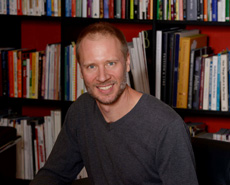
Trent Northen, Friday’s speaker
Trent Northen is Acting Division Director and Career Staff Scientist Environmental Genomics and Systems Biology Division at Lawrence Berkeley National Laboratory (LBNL). He is the recipient of both an DOE Early Career Award and Presidential Early Career Award in Science and Engineering (PECASE) and has over 70 publications. Dr. Northen’s research is focused on understanding how microbial communities are structured by the biopolymers and metabolites in their environment and the dynamic and reciprocal processes by which they transform these pools. A major effort in his lab is using mass spectrometry metabolomics and imaging in conjunction with other systems biology tools to examine metabolite exchange and niche partitioning in biocrust communities.
Symposium chairs
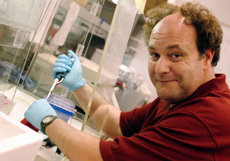
Ferran Garcia-Pichel, Co-chair, Molecular Frontiers Symposium
Ferran Garcia-Pichel is the Dean of Natural Sciences and a Professor in the School of Life Sciences at Arizona State University. Professor Garcia-Pichel joined ASU in 2000. Garcia-Pichel received his Licenciatura con Grado in science at the Autonomous University of Barcelona, Spain, and his M.S. and Ph.D. from the University of Oregon in microbiology. Prior to his position at ASU, he was a researcher at the Max Planck Institute for Marine Microbiology in Germany. He is an ASU faculty exemplar, a fellow of the American Academy of Microbiology, and an American Society for Microbiology Distinguished Lecturer. Garcia-Pichel speaks five languages and has authored or co-authored more than 100 articles in prestigious journals, including Science, Nature, PNAS, Journal of Biotechnology, Environmental Microbiology, and Journal of Bacteriology. In addition to his appointment at ASU, he is an affiliated scientist with the Lawrence Berkeley National Laboratory, California, and research associate with the Smithsonian Tropical Research Institute in Panama. Professor Garcia-Pichel’s research areas include studies on bacterial diversity, behavior adaptations and survival in extreme environments, and biological soil crusts and soil stabilization.
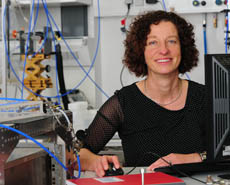
Bettina Weber, Chair, Synthesis: new findings, knowledge gaps, new directions (Opening Plenary)
Bettina Weber leads an international and interdisciplinary research team on Microbial Surface Communities and Processes at the Max Planck Institute for Chemistry in Mainz. She has been studying biological soil crusts over a couple of decades, addressing a wide range of topics from biodiversity and ecology to biogeochemical cycling and from molecular to global scales. “Biocrusts should be recognized as key players in the Earth system. They strongly influence nutrient, trace gas and aerosol cycling in drylands and need to be considered in climate and Earth system models,” she believes. Her research led to several highly visible papers, and she is co-editor of a 550-page edited volume on biological soil crust research comprising 25 chapters with 61 co-authors from over 40 countries.
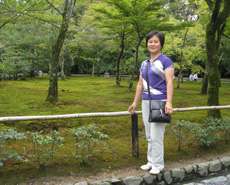
Yunge Zhao, Co-chair, Ecological Restoration Symposium
Yunge Zhao is a professor of Northwest A&F University, China. She is interested in ecological function and restoration of biocrusts in the Loess Plateau region of China. She has authored or co-authored 40 papers or book chapters on the subject. Although mostly be found in arid and semiarid regions, biocrusts actually can occur on most type of soils and in almost any climate regions in the world. Being consisted of pioneer organisms, biocrust communities are often the first photoautotrophs on the degraded soil surface and play critical roles in the ecosystem, especially on soil stabilization and fertility. Hopefully, we can speed up the restoration of degraded lands and ecosystems, like degraded dry land, old mines and even some section of constructive engineering in arid and semiarid regions, by restoring biocrusts. Thus, it is essential to understand the eco function, eco-physiology and ecological suitability of biocrusts so as to restore them.
